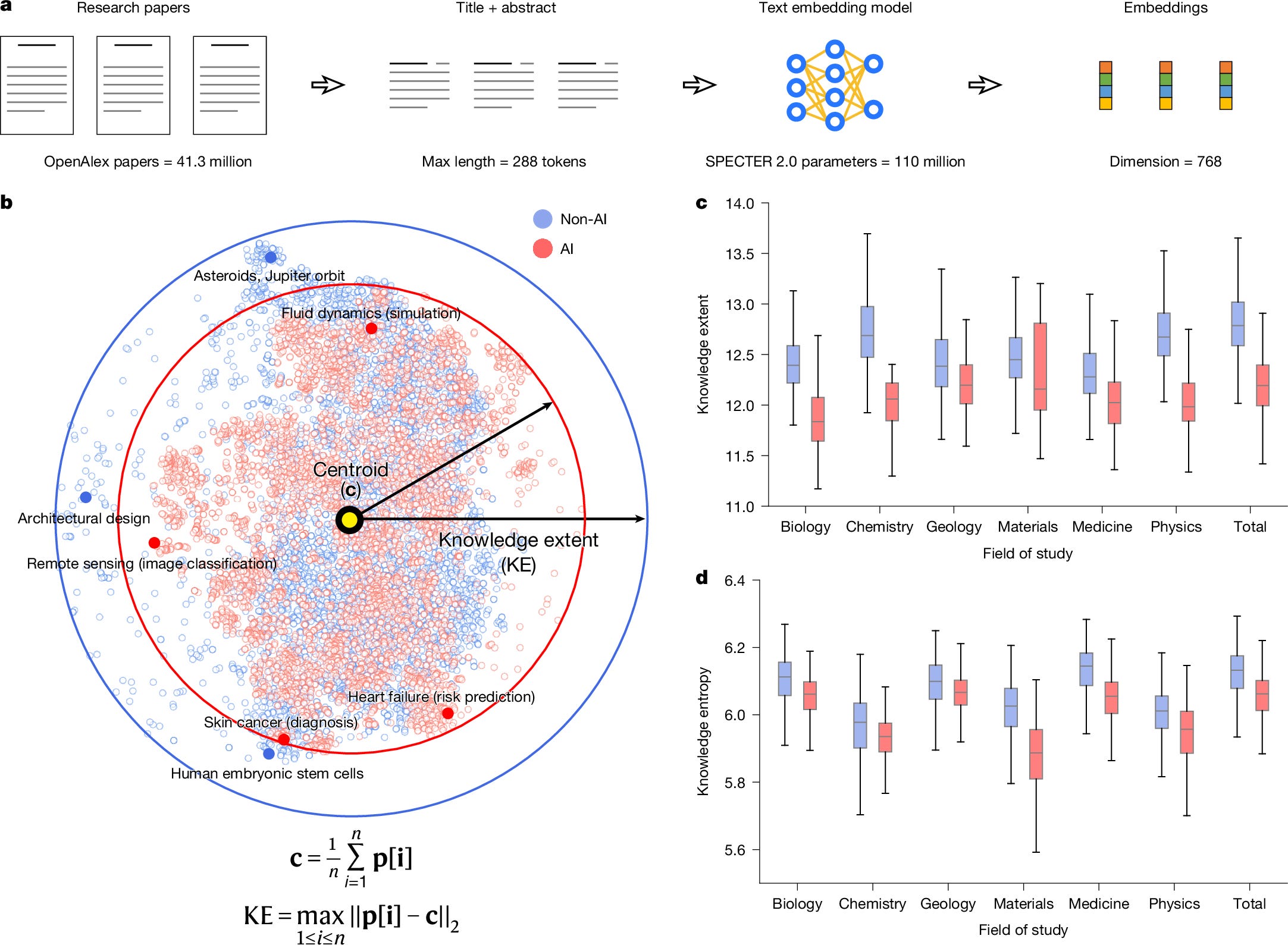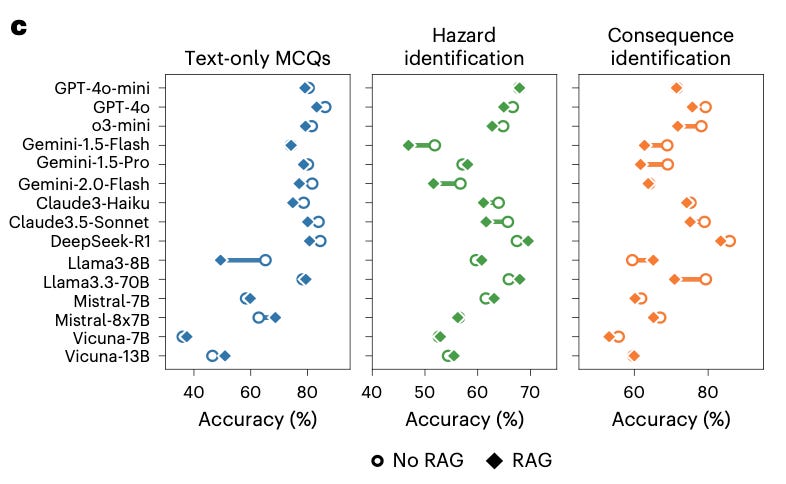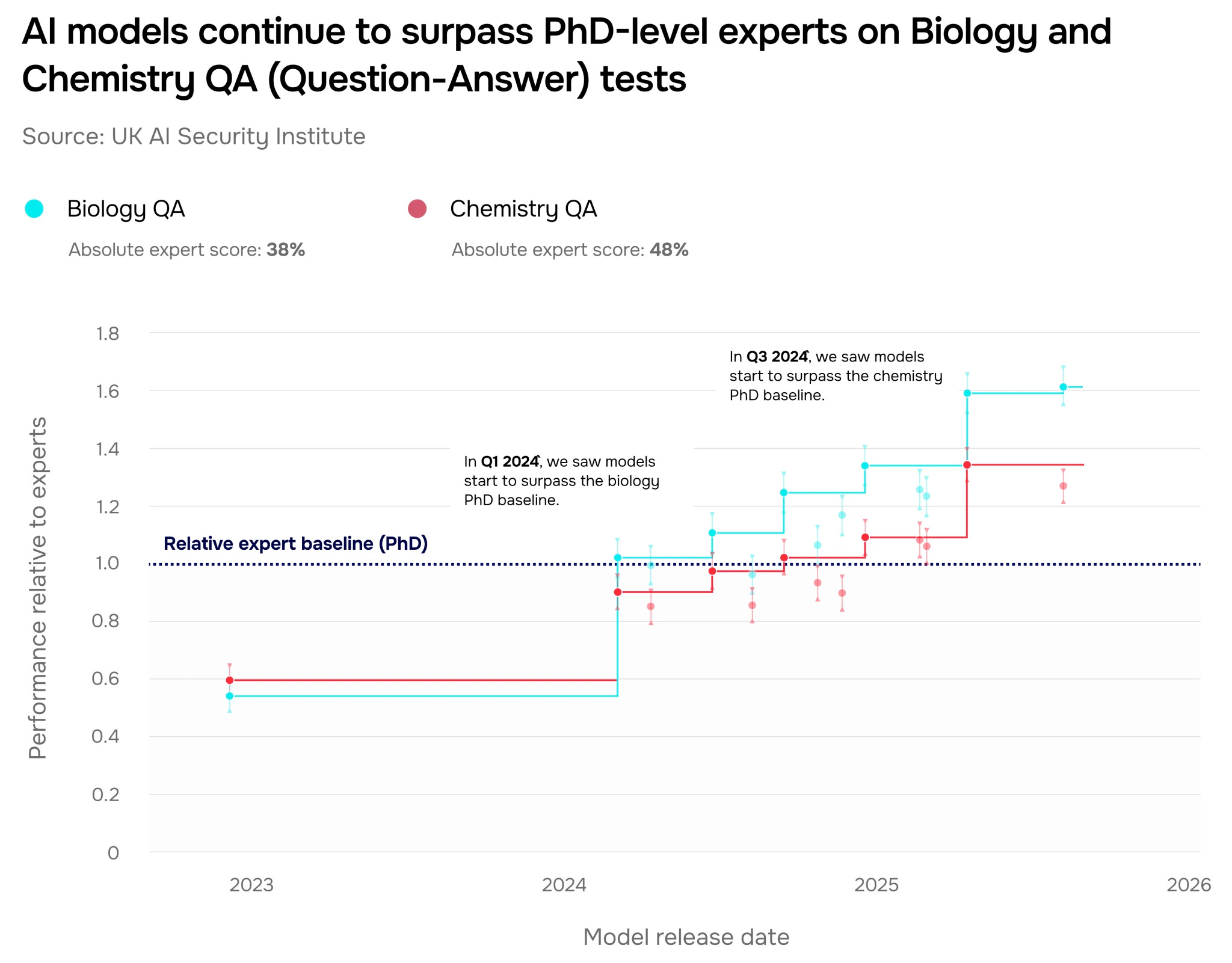
A new study in Nature finds that AI adoption correlates with faster career ascent and higher citation impact, while the semantic spread of entire fields subtly contracts around fewer topical regions.

A new study in Nature finds that AI adoption correlates with faster career ascent and higher citation impact, while the semantic spread of entire fields subtly contracts around fewer topical regions.
Das Open Research Office Berlin sucht ab sofort eine Juristin (m/w/d) für den Aufbau einer juristischen Anlaufstelle für Forschende aus Berlins Wissenschafts- und Kulturerbe-Einrichtungen (Legal Helpdesk Berlin).

A laboratory safety benchmark finds retrieval augmented generation (RAG) can make strong models worse.
Like many awesome internet phenomena, blogging started in the late nineties. Nature authors and editors recognized the effort early. In 2006 there were already more than 45 million blogs, and at least 50 science blogs made it in the top 50,000 and 5 in the top 3,500.

Fausta Gantús, DR © Fotografía digital (3024 x 4032 / 72 x 72) San Agustinillo, Oaxaca, México, Julio de 2024 Redes de la artista Esta es una reproducción digital, con fines de divulgación, de una obra original, todos los derechos de autor y reproducción están reservados por la artista.
I’m still making my way through Brian Curtice’s excellent and detailed post on Greg Paul’s (2025) recent erection of a new titanosaur genus (Curtice 2025), but I just want to comment on this one passing thought of Brian’s: The species tells me where it was found if named by “Old Timers,” the genus almost can […]
Die Kreativität im KI-Zeitalter steht vor einer wichtigen Herausforderung: Einerseits sind die KI-Modelle hungrig nach immer neuen Trainingsdaten, mit möglichst viel Schöpfungshöhe. Andererseits pochen die Urheberinnen dieser Daten bzw. die Inhaber der Rechte an den Daten auf eine angemessene Vergütung. Eine neue Initiative namens „Really Simple Licensing“, abgekürzt RSL, verheißt eine unkomplizierte Lösung.

Deux chercheurs français viennent de publier les résultats d’une enquête en ligne diffusée dans trois départements d’Occitanie une semaine après une vague de chaleur durant l’été 2022. Jusqu’ici, nous manquions cruellement d’informations quantitatives sur les comportements qui sont adoptés pour faire face à la chaleur en France.
Data and knowledge originating from heterogeneous sources often use heterogeneous controlled vocabularies and/or ontologies for annotating named entities. Semantic mappings are essential towards resolving these discrepancies and integrating in a coherent way.

AIxBio, biotech 2025, Claude Code, Positron tips, cell fate engineering, academic slop, AI in health & life sciences research, R updates (R Data Scientist, R Weekly), RAG in R, papers &